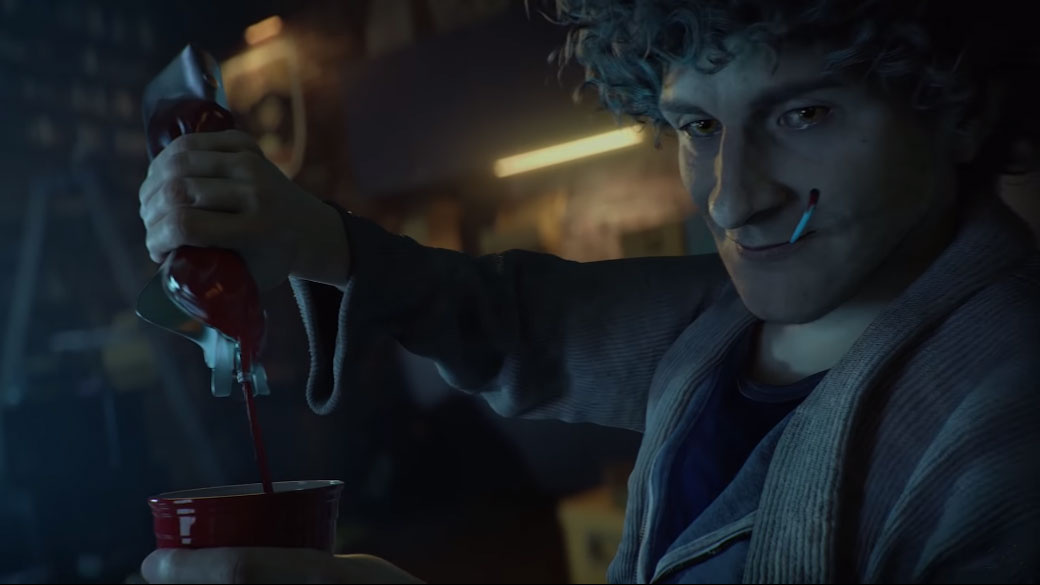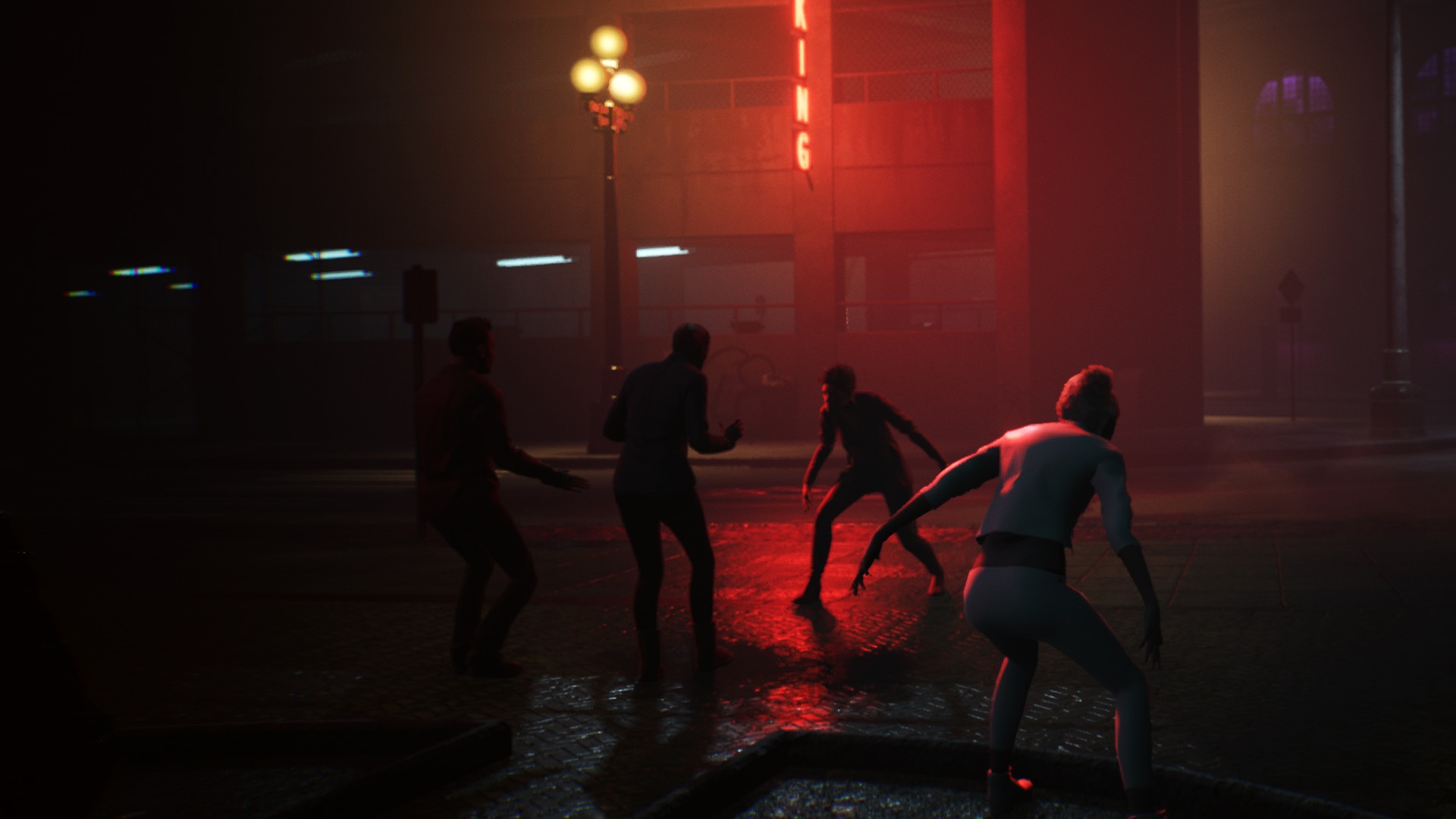My two crazy theories for how Bloodlines 2 can stay true to its Vampire lore
Thinbloods are a complicated group, but their history seems like it will make sense in the upcoming sequel.

Paradox Interactive had the first of their weekly Vampire: The Masquerade — Bloodlines 2 streams today, where they revealed more about the Thinblood powers. While getting a more detailed look at the abilities was exciting, many Vampire: The Masquerade lore-hounds like myself were still wondering the same thing: How can you join another clan later in the game if you start out as a Thinblood? Aren’t all vampires locked into specific disciplines and abilities based on whoever sires them?
Turns out it’s more complicated than that.
I had to break out my lorebooks to get a clearer picture of how this all works, but the Thinbloods we were introduced to in the first Bloodlines videogame are actually just one possible type of Thinblood. By looking at how clans are historically formed, how vampires can develop disciplines and powers separate from their bloodline, and the current state of the modern world in the V5 rulebook, what seems like a deviation from canon starts to make sense.

First, let’s talk about the characteristics of a Thinblood. They are the last generations of vampires (the 14th and 15th). Their bloodline is extremely diluted. So diluted that they must spend twice the amount of blood points to use their disciplines, and a portion of their blood must go toward waking every night. Thinbloods have a hard time embracing others and, if their childe survives the embrace, they often do not wake up as a vampire until a while later. Weird, right?
But all Thinbloods are part of a bloodline, or a group of vampires who share a common lineage. There are bloodline-specific clans, as we saw in the Bloodlines videogame, that share common traits specific to only one bloodline. Malkavians, for example, are insane. Gangrel can change physical form. Nosferatu fell off the ugly tree and hit every branch on the way down.
As a whole, a clan is just one of the 13 major vampire groups that share common characteristics passed on by blood.
A vampire can’t change their lineage, so a vampire will always belong to the same bloodline as their sire, but traits, disciplines, and culture within the bloodlines themselves can change with each passing generation. If you’ve played the first Bloodlines, you might remember meeting Jeanette in the Asylum for the first time. If you play as a Malkavian, she says to you, ‘you’ve got it bad,’ meaning you’re one of the crazier Malkavians in your clan. Yes, they can have varying levels of crazy.
The biggest gaming news, reviews and hardware deals
Keep up to date with the most important stories and the best deals, as picked by the PC Gamer team.
Also, bloodlines can be created in a variety of ways: Mythical methods, divergent evolution, drinking all of another vampire’s blood, or via a flawed embrace, meaning that a new vampire didn’t inherit any characteristics of their sire’s clan.

Finally, Thinbloods have been know to develop powers all on their own, despite their diluted blood. They may not be able to gain complete mastery over their powers, and Thinbloods are unique in that they're the only vampires that can develop their own powers; it’s normally impossible for older generations to do this. So it fits with canon to start off as a Thinblood with powers in Bloodlines 2.
Taking that entire, extremely condensed version of Vampire: The Masquerade rules and lore into consideration, I have two theories of how starting out as a Thinblood and joining a different clan later in the game could make sense. In its stream, Paradox mentioned that the story could deal with players joining as an outsider, so here’s how that could work.
Theory one: You become an honorary member of a clan
This is the most logical if you think about it from a clan Nosferatu perspective. If Nosferatu are included in the game when it first releases, there isn’t a clear-cut way to explain how your character starts as a normal-looking Thinblood only to become hideous after choosing to join the Nosferatu; it’s two different bloodlines, not to mention lineages. But how would you become an honorary member of a clan?
Since the entire vampire political spectrum is in flux, maybe you not only align yourself with a faction, but also with a specific clan.
We can look to some background information in the V5 rulebook for that. In the new edition, the vampire world is in a state of chaos. Powerful vampire leaders in cities around the world have abandoned their domains, leaving the various clans and sects within those cities fighting for power. Even a newbie vampire could gain power if they play their cards right.
So, since the entire vampire political spectrum is in flux, maybe you not only align yourself with a faction, but with a specific clan. Clans like the Assamites in the lore are not defined by their bloodline, but by their beliefs. Maybe we won’t see the same clans from Bloodlines, but rather independent clans that don’t claim allegiance to any sect like the Camarilla or Sabbat.
Theory two: You kill a vampire in a specific clan and take in their entire essence.
In the tabletop games, a Thinblood can perform Diablerie, or drinking another vampire’s blood until the point of Final Death. The Camarilla strongly forbids this practice, as they consider it akin to cannibalism, but that doesn’t mean this won’t be an option in the game as a means of explaining the main story.
When a Thinblood drinks all the blood from another vampire, they not only gain their traits, but they can also go up a few generations, depending on how old that vampire was. There are rumors of diablerists taking on the mannerisms and personalities of their victims, for when an act of Diablerie is committed, it’s not just blood a vampire ingests, but it’s also their victim’s soul.
When an act of Diablerie is committed, it’s not just blood a vampire ingests, but it’s also their victim’s soul.
Additionally, according to the V5 version, Thinbloods have their own blood alchemy. This potentially allows them to taste the Disciplines of other kindred—and get more than a taste if they can find enough blood to fuel their alchemy. (Yep, Diablerie!)
I personally like this the best. It’s not an easy thing to accomplish in the tabletop games, but it would be awesome if it was an option in Bloodlines 2.
Can the sequel live up to Vampire: The Masquerade? If so it might make its way into our roundup of the best RPGs ever.


